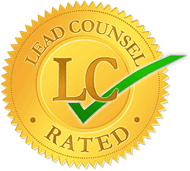Negligence is the basis of most personal injury cases. To win a negligence claim, you must prove that the defendant breached a duty of care owed to you, and this breach of duty caused your damages.
A duty of care might be express, as it is between healthcare providers and their patients, or it might be implied, as it is between all drivers on the road. Regardless of how the duty of care was established, the burden of proof will be on you as the claimant. In other words, you’ll need strong evidence to prove the following four elements:
- A Duty of Care Existed
In most personal injury cases, proving that a duty of care existed is fairly straightforward. For example, property owners have a duty to keep their premises in reasonably safe condition for invitees, and motorists have a duty to follow the rules of the road. There are, however, many circumstances when defendants dispute that a duty of care existed. A skilled attorney can anticipate such a dispute and gather the evidence needed to overcome it.
- The Duty of Care Was Breached
After establishing that the defendant owed you a duty of care, your lawyer must demonstrate how the duty of care was breached. The strongest evidence will depend on the circumstances but may include:
- Incident reports;
- Eyewitness testimony;
- Expert witness testimony;
- Surveillance footage;
- The results of any chemical tests conducted at the scene; and
- Photographs of the scene.
- Causation
To prevail in a negligence claim, it must be shown that the breach of duty was the proximate cause of the damages you suffered. If you were struck by a drunk driver, for example, your attorney will have to demonstrate how your property damage, injuries, and other losses were the direct result of the impact. But if your mother had a heart attack upon hearing about the accident, the impaired motorist would not be considered liable for any damages she incurs. Although causation is sometimes easy to prove, a dispute may arise if a claimant has a pre-existing condition or waited several days to seek medical treatment.
- Damages
Since the purpose of a personal injury claim is to make the victim whole again, he or she must have actually incurred damages to recover a financial award. In the state of New York, potentially recoverable damages include:
- Medical bills;
- Lost wages and benefits;
- Loss of future earning capacity;
- Property damage;
- Alternative transportation;
- Domestic help;
- Child care;
- Necessary home or vehicle modifications;
- Pain and suffering;
- Mental anguish;
- Loss of enjoyment in life; and
- Scarring and disfigurement.
If the liable party’s conduct was especially egregious, a punitive award may also be warranted. In New York, claimants can pursue punitive damages when the opposing party’s conduct constituted maliciousness, wanton recklessness, fraud, a high degree of immorality, a conscious disregard for the safety of others, or willful negligence.
Call 212-421-0300 to Discuss Your Case with a New York City Personal Injury Attorney
If you intend to file a negligence claim in New York, contact The Law Office of Richard M. Kenny. Our attorneys have more than a century of combined experience in legal practice. Call 212-421-0300 or fill out our Contact Form to schedule a free case evaluation with a personal injury lawyer in New York City.











